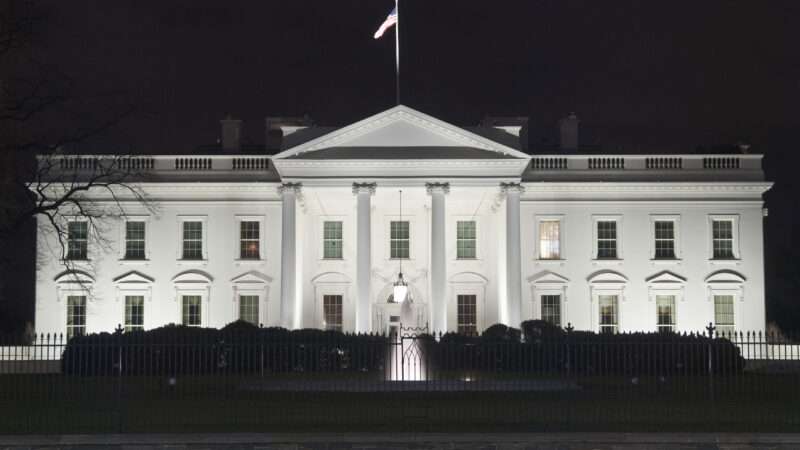
As parts of the federal bureaucracy go, the Employee Benefits Security Administration (EBSA) would seem to be one of the more mundane and nonpolitical.
It doesn't make rules that restrict the free market or tell people how to live their lives. It's responsible for little more than managing the health insurance plans and the retirement benefits afforded to more than 152 million current and former federal workers and their families. That's about as rote and boring as a federal agency could be.
And yet, the EBSA is now subject to the Biden administration's attempt to make literally every government function part of the fight against climate change.
"The big change under Biden, and this is his own phrase, is 'whole-of-government' regulatory transformations in climate crisis, in equity, in competition policy, in 'long COVID,' in digital currency, and so on down the line," says Wayne Crews, a senior fellow at the Competitive Enterprise Institute and author of the free market group's annual report on the size of the regulatory state. "It's way beyond what we saw with Barack Obama, and his pen and phone."
Fund managers who handle retirement accounts through the EBSA are being told to consider climate change and other environmental, social, and governance (ESG) factors in their decisions. It illustrates how deeply the Biden administration has embedded "controversial, unrelated progressive causes into the regulatory process," Crews says.
And that's just one example of how the Biden administration has shifted the priorities of the federal regulatory state. In the 28th annual edition of its "10,000 Commandments" report, CEI says those "whole-of-government" mandates are telling bureaucrats to prioritize issues that in some cases have nothing to do with the functions of their agencies.
Like Executive Order 13985, which Biden signed shortly after taking office in order to promote "racial equity and support for underserved communities through the federal government." In practice, equity doesn't mean equal opportunities but rather equality of outcomes—a situation that naturally paves the way for all manner of new mandates and regulations. The Department of Agriculture, for example, has responded to that executive order by launching what the CEI report calls "the open-ended pursuit" of racial justice via the establishment of a new "racial equity commission."
Whether a USDA commission can bring about an end to racism remains an open question—and it's probably right to be skeptical. But there's no doubt that, like all expansions of the federal regulatory state into new territory, the commission's very existence makes the goal of scaling back the USDA more difficult.
Overall, the CEI report pegs the cost of the federal regulatory state at about $2 trillion. While the number of new rules approved during 2021 was historically rather low—there were merely 3,257 of them—the total did tick upwards from the annual levels achieved by the Trump administration, which had managed to slow regulatory processes significantly.
While it might not be churning out new rules at a record pace, the Biden administration is laying the groundwork for a larger and less accountable regulatory state. Several executive orders and subsequent rules made by various agencies have tamped down on transparency, according to the CEI report. That includes the abolition of a Trump-era executive order that required a direct presidential appointee, rather than a career bureaucrat, to have the final sign-off on any binding policy, as well as the elimination of another Trump-era order that required agencies to publish more information online about their regulatory work.
Perhaps most worrying is the way the Biden administration has sidelined consideration of regulations' costs. In an executive order issued in January 2021, Biden ordered agencies to include unquantifiable benefits in their analyses, and some agencies have pushed even further. The Environmental Protection Agency, for example, boasted in May 2021 about doing away with what it called "unnecessary" considerations of costs and benefits from its regulations.
Overall, the decline in regulatory transparency means Congress and outside groups like CEI will have a more difficult time tracking what regulatory agencies are doing.
Paring back the new growth of the regulatory state will be difficult as long as Biden remains in the White House, but Crews hopes that Congress could take steps to push back on the transparency issues after the midterms—regardless of which party controls the House and Senate.
"It's hard to vote against transparency," he says.
The post Biden Is Pushing 'Equity' and 'Environmental Justice' Into Every Corner of the Regulatory State appeared first on Reason.com.



.png?w=600)



